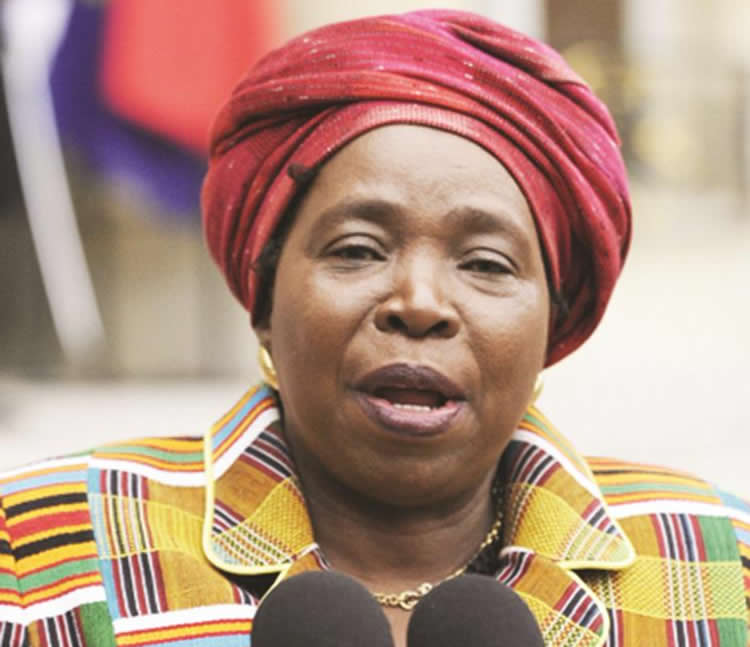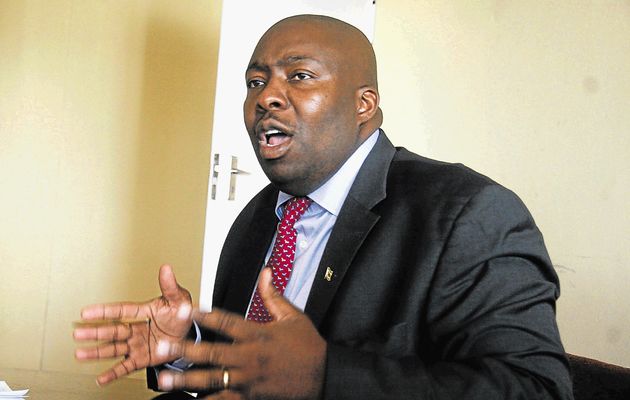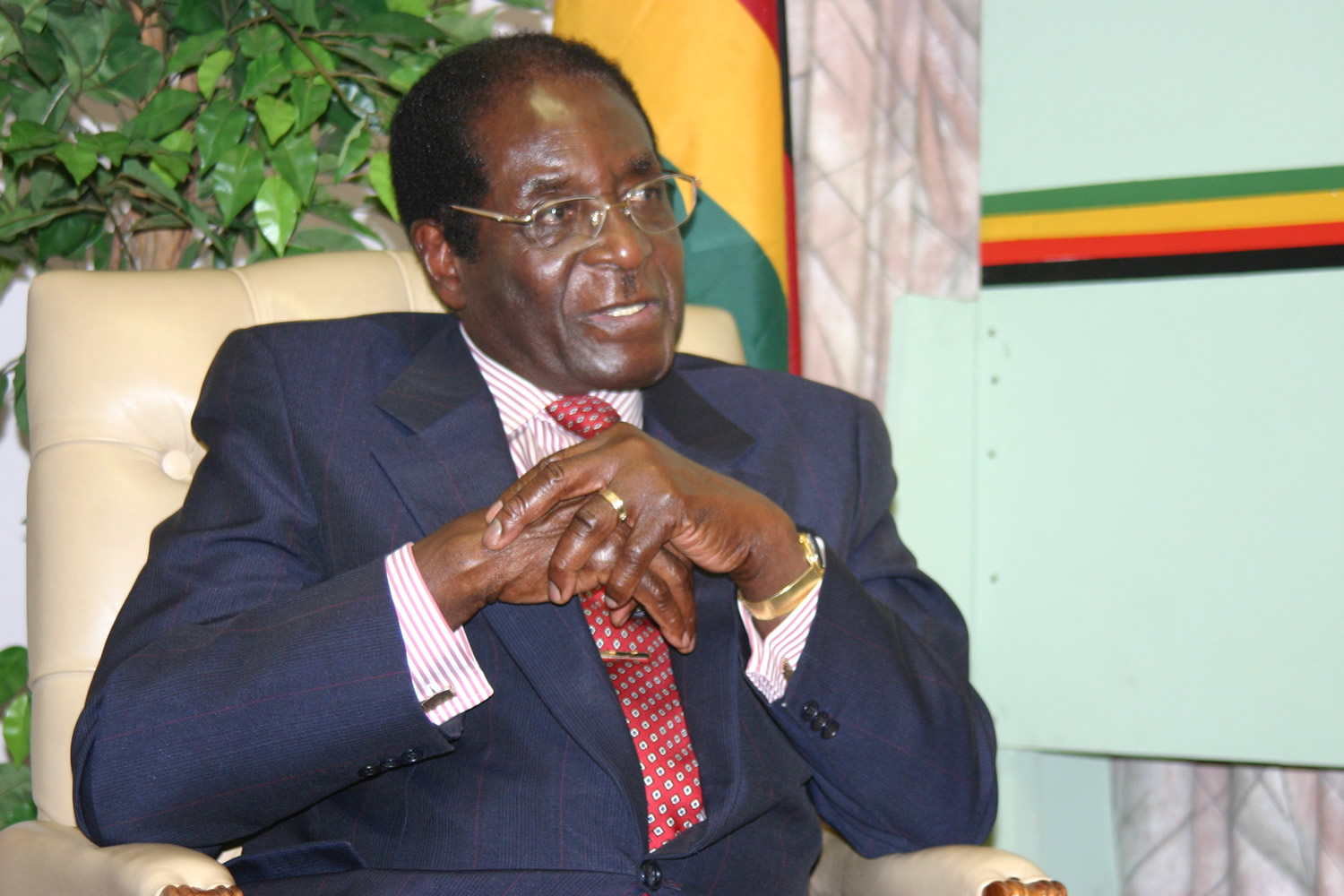Full text: AU pre-election report

July 31 2013, General Elections
Pre-Election Statement
25 July 2013
1 Introduction
THE African Union (AU) deployed 9 Long Term Observers (LTOs) on 15 June to observe key elements of the electoral cycle of Zimbabwe’s Harmonised Elections scheduled for July 31, 2013 in furtherance of the OAU/AU Declaration On the Principles Governing Democratic Elections in AfricaAHG/Decl.1 (XXXVIII) (2002), the African Charter on Democracy, Elections and Governance (2007) and the Long Term Election Observation Framework (2013).
The Mission met with several interlocutors at national, provincial and district levels, including senior government officials, the Senate, representatives of political parties, the Zimbabwe Electoral Commission(ZEC), senior officers of the Zimbabwe Republic Police (ZRP), members of the diplomatic Corps, representatives from civic organisations, media , women’s groups, the disabled and the Human Rights Commission.
The Mission deployed four teams assigned to observe nomination, voter registration, campaigning, special voting and all inter-related components of the electoral cycle in the pre-election phase of the process. In total, the LTO Mission has observed these processes in 52 districts, in all 10 provinces for the past six weeks.
The Mission commends all political contestants and stakeholders for contributing to the present temperate political climate, a marked improvement to the conditions that preceded the 2008 Harmonised Elections.
To this end, the Mission notes that international law recognises that the conduct of elections requires an effective legal framework which protects fundamental rights and freedoms.
The African Charter on Democracy, Elections and Governance adopted in 2007 and which entered into force on the 15 February 2012 and the Durban Declaration on the Principles Governing Democratic Elections in AfricaAHG/Decl.1 (XXXVIII), 2002 are instructive in this regard.
The Durban Declaration underscores that democratic elections are the basis of authority of any representative government. As such, regular elections constitute a key element of the democratization process and are therefore an ingredient for good governance, the rule of law, the maintenance and promotion of peace, security, stability and development.
The declaration further sets out standards under which democratic elections should be conducted, including democratic constitutions in compliance with supportive legal instruments; a system of separation of powers that ensures in particular, the independence of the judiciary; the holding of elections at regular intervals by impartial, all-inclusive competent accountable electoral institutions staffed by well-trained personnel and equipped with adequate logistics.
2 Political Context
Following the contested elections of 2008, the Republic of Zimbabwe has made significant strides towards strengthening its electoral system. The enactment of a new constitution in May 2013, to replace the 1980 Lancaster House Constitution, has generated a sense of hope for an improved human rights dispensation — and subsequent improvements in the conduct of future elections.
Most stakeholders consulted indicated that the country’s political climate had improved since the last election in 2008. The power sharing arrangement introduced within the rubric of the Global Political Agreement (GPA), the successful holding of the referendum and the subsequent adoption of the new Constitution has been singled out as key reasons for the improved political climate.
3 Electoral Reforms
The new Constitution sets out principles of the electoral system, including the regular holding of peaceful, free and fair elections conducted by secret ballot, based on universal adult suffrage and equality of votes, free from violence and other electoral impediments.
The African Union Long Term Observer Mission notes that the principles enshrined in the new Constitution are in accordance with the OAU/AU Durban Declaration. Further, the Constitution restores citizenship and voting rights to ‘aliens’ that were previously disenfranchised.
The promotion of the participation of women through the introduction of legislated gender quotas in the National Assembly is also acknowledged. Similarly, the representation of persons with disabilities in the Senate is noted.
The Mission, in addition, notes the introduction of the Special Vote for disciplined forces and ZEC officials who are deployed outside of their wards on polling day. The Mission observes that the Special Vote is an open and public process conducted at designated polling stations. The Mission further acknowledges that the process is open to observers (foreign and domestic), political party agents and the media.
Nevertheless, the African Union Observer Mission notes the concerns raised by several stakeholders about the need to continue to review communication, media-related and security laws and align them with the new Constitution. The AU Mission particularly takes cognisance of several interlocutors’ views that fundamental freedoms may be curtailed should there be no further review of the provisions of the Broadcasting Services Act (BSA) and the Public Order and Security Act (POSA) and the manner in which they were being implemented. Thus, the political antecedents that contributed to the post-elections violence of 2008 may still exist.
While amendments have been made in the Electoral law to improve the participation of disabled persons in the electoral process by granting them the right to be assisted by a person of their choice; the AU Mission notes that greater efforts and improvements could still be made in this regard. For instance, by developing ballots in Braille for persons with visual impairment, this will further guarantee the secrecy of their votes.
4 Election Management
and Election Preparedness
The credibility of any electoral process is partly predicated on the professionalism, service mindedness and integrity of the Electoral Management Body (EMB). To this end, Article 17 of the African Charter on Democracy, Elections and Governance (2007) emphasises the primacy of independent and impartial national electoral bodies responsible for the management of elections.
Article III of the OAU/AU Declaration on the Principles Governing Democratic Elections in Africa AHG/Decl. (XXXVIII) also re-affirms the centrality of all-inclusive, competent and accountable national electoral bodies to the management of a credible electoral process.
The Mission observes that since 2004, Zimbabwe has undertaken a number of inter-related steps to restructure its electoral management system. Between 1980 and 2004, the electoral management structure consisted of a complementary electoral governance system encompassing the Electoral Supervisory Commission (ESC), the Delimitation Commission, the Registrar-General (RG) of Elections and the Election Directorate.
Following recommendations by political parties, Civil Society Organisations and the ESC, the country re-modelled its electoral management system taking into account the Southern African Development Community (SADC) Principles and Guidelines Governing Democratic Elections adopted by the SADC Heads of State and Governments in Mauritius in 2004.
The Mission notes further that upon the abolition of the ESC through Constitutional Amendment No. 17, the Zimbabwe Electoral Commission (ZEC) replaced the ESC and assumed the functions previously performed by the Registrar General of Elections, whose title has since been aligned to the new role (Registrar-General of Voters).
The Mission takes cognisance of the fact that further efforts have been made through facilitated inter-party dialogue within the framework of the GPA, to engender the institutionalisation of an independent electoral management body, consistent with Sadc and AU instruments governing democratic elections. Constitutional Amendment no: 19 of 2008 provided for the re-establishment of the Zimbabwe Electoral Commission (ZEC), based on an apparently competitive, more inclusive and consultative method of appointing commissioners to the ZEC.
Therefore, while the AU LTO Mission notes the reservations expressed by some interlocutors about the independence or lack thereof, of the ZEC Secretariat, the Mission observes that the majority of the cross-sectoral stakeholders expressed confidence in the integrity and abilities of the Chairperson and Commissioners appointed under the reconstructed ZEC to professionally manage the elections in Zimbabwe — the management of the March 2013 Constitutional Referendum being a significant point of reference.
Throughout the Mission’s observation of the proceedings of the Nomination Courts and of registration processes, these perceptions were tested at national, provincial and district levels.
The Mission, therefore, is of the impression that there is a perceptible improvement in the public’s appreciation of the electoral management body, which — if sustainable — may bode well for the July 31 and other subsequent elections.
It is stated in the OAU/AU Declaration on the Principles Governing Democratic Elections in Africa(2002), that Member States are to ensure that the requisite logistics and resources, including funding, are availed to the electoral management bodies to enable them execute their functions.
Zimbabwe’s July 31 elections have been fore-shadowed by two inter-related factors: The first of these, is the unsuccessful applications to the Constitutional Court by Minister of Justice and Legal Affairs Hon.
Patrick Chinamasa, (responding to the recommendations of the Extraordinary Summit of the Sadc held at Maputo on 31 June, 2013); the MDC formations; and two private citizens, all seeking extensions to the date proclaimed by President Mugabe.
This raised expectations on the one hand, and trepidation on the other, regarding the time-frames necessary for the finalisation of arrangements for critical elements of the electoral administrative process. Secondly, the LTO Mission noted the persistent allegations of lack of funding for the ZEC to enable it manage the electoral process effectively.
In the same vein, the Mission takes note of the fact that the two pre-election interventions by the ZEC, that is, the registration exercise and Special Voting processes, have been clouded by uncertainties about funding, exacerbated by — particularly — the logistical and management challenges encountered by the electoral management body during the Special Voting period (July 14 & 15). However, the Mission was re-assured by the statement by Minister of Justice and Legal Affairs Hon. Patrick Chinamasa that funds are being availed to the ZEC for election purposes, in time for the 31 July Harmonised Elections.
5 Voter Registration
Under Schedule 6 of the New Constitution (2013), for the purposes of the first elections, the Registrar General of Voters is responsible for the registration of voters and compiling voters’ rolls, closely superintended by the ZEC. Under these provisions, the Registrar General must conduct, under the oversight of the ZEC, a special and intensive voter registration exercise for at least 30 days after the publication day. In line with its Terms of Reference (TORS), the AU LTO Mission Observed nomination and registration processes between 24 June and 9 July in all 10 provinces of Zimbabwe. In general, the LTO Mission noted a peaceful and largely orderly conduct of these processes in nearly all centres observed. AU Observers noted that registration, though essentially slow in pace, experienced increased interest from potential registrants toward the closing phases, indicative of the level of enthusiasm amongst the Zimbabwean people to exercise their democratic right.
While acknowledging the increased number of registered voters from 5.2 million to 6,4 million, as reported by ZEC, the Mission notes that thousands more Zimbabweans were unable to register due to the expiry of the 30 day prescription period.
The Mission also noted complaints of exclusion by previously denationalised Zimbabweans, whose citizenship rights were restored by the new Constitution, about the relatively short time-frame in which they were required to regularise their citizenship and registration status.
Although the extent of this exclusion cannot be determined at this point by the Mission, the occurrence raises some concerns, if not important lessons for the future. The closure of this process, the Mission observes, was occasioned by disquiet from civil society and some interlocutors, who felt much more could have been done particularly in terms of embracing non-state actors in the pre-registration voter education exercise to bolster the outcome
6 Special Voting
Section 81 of the Electoral Act provides for the Special Vote — an instrument configured to facilitate early voting by disciplined forces and electoral officers assigned to duty on election-day. From the Mission’s observation of the Special Vote, it has been generally noted that the process was characterised by serious logistical and management challenges, denying several thousand applicants the opportunity to cast their ballots on the allotted days.
In all centres observed by Long Term Observers, the entire special voting process was paralysed by a failure to deliver ballot papers timeously by the ZEC, resulting in long queues in most centres or complete inactivity in others.
The general impression of the Mission is that a combination of inter-related factors may have contributed to this occurrence: the complexities of managing a novel mechanism; late finalisation of ballot papers, compounded by power outages, human resources incapacities and slow printing processes.
Notwithstanding the nascent challenges experienced by ZEC in this regard and based on its analysis and consideration of the historical factors that occasioned the introduction of the Special Vote the Mission is of the view that the Special Vote does, in fact, respond to AU Principles and Guidelines Governing Democratic Elections with regard to its engendering increased levels of transparency and accountability not previously associated with voting arrangements for disciplined forces.
7 Civic and Voter Education
The OAU/AU Principles Governing Democratic Elections enjoin Member States to promote civic and voter education in close liaison with civil society groups and other relevant stakeholders.
The AU Election Observer Mission notes that while legislative provisions exist that enable the transmission of knowledge to the electorate by ZEC, and/or by persons so designated by ZEC, civil society stakeholders consulted, felt excluded and marginalised from the pre-registration voter education process. LTOs observed, consistently, through the registration process, the absence of civil society organisations in the electoral arena, a matter which raises some concerns about the principles of collaboration in this regard.
The Mission is of the view that the pre-registration process might have benefited greatly from cross-sectoral collaboration between ZEC and other actors permitted by law to undertake these exercises.
8 Electoral Campaign
The LTO Mission continues to observe pre-election political activity across all Areas of Responsibility (AoR). Political campaigns have been undertaken in a peaceful environment, conditioned by reconciliatory and ‘peace’ messaging from all political actors observed by the Mission thus far. The isolated reports of minor skirmishes notwithstanding, the Mission commends the leadership of the contesting political parties for their exemplary display.
9 The Media Environment
Article 17 (3) of the AU Charter on Democracy, Elections and Governance (2007) stipulates the principle of fair and equitable access by contesting parties and candidates to public media. Section 61 of the Constitution of Zimbabwe provides for freedom of expression and freedom of the media, while Section 62 encompasses the right to access information.
In several engagements with civil society, media-based organisations and opposition parties, interlocutors have brought to the fore their continued concerns about the application of legal instruments related to communicative freedoms such as the Access to Information and Protection of Privacy Act (AIPPA), introduced in 2003; and, the Broadcasting Services Act (BSA), which, they claim, constrain the expansion of private or community radio stations, therefore limiting the public sphere of communication. Similarly, the Interception of Communication Act; the Criminal Law and Codification Act are foregrounded.
While the Mission has not independently observed the selective application of these provisions, it notes that the media environment in Zimbabwe is highly polarised regardless of its classification. Whereas, the Mission recognises the independence of the media to editorially determine their content of their broadcast or other communication, as provided for in Section 61 of the new Constitution of Zimbabwe, it was observed that both privately-owned and State-owned media establishments are evidently politically inclined in their reportage. The Mission’s emphasis however, is on the function of the state broadcaster which has a central role in elections, in terms of the AU Charter (2007), to provide a platform for airing political messages or news coverage emanating from all political contestants.
It is noted also that the new Constitution of Zimbabwe provides fair opportunity for the presentation of divergent views and opinions. In this regard, The LTO Mission notes that the national broadcaster has tended to provide live and in-depth coverage largely to a single political party.
The Mission acknowledges, however, the marked improvement in political advertising from a number of political parties in the programming of the state broadcaster in the last two weeks.
10 Election Security
The Mission also welcomes statements from the Zimbabwe Republic Police, pledging to sustain the peaceful political environment; and to exercise professionalism and impartiality in enforcing the law.










Comments